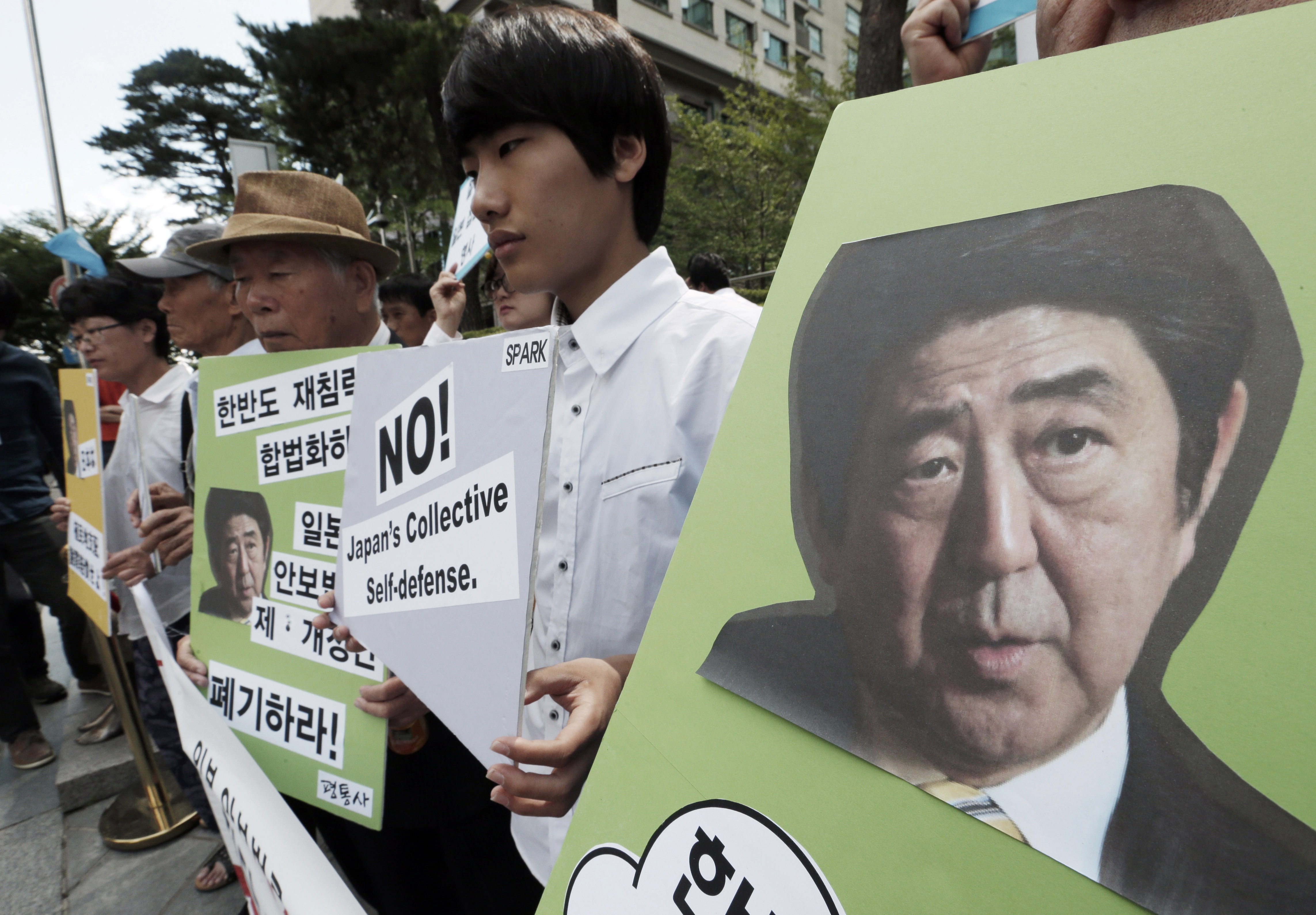On Aug. 15, Prime Minister Shinzo Abe will give a much-anticipated speech commemorating the 70th anniversary of the end of World War II. This presents a golden opportunity to hit the reset button on regional relations and to generate momentum toward overcoming history driven tensions that plague East Asia.
Sources close to Abe suggest that he won't issue an apology, nor condemn Japan's colonial aggression or what the 1995 Murayama statement called "mistaken national policy," but will express "deep remorse." Abe calculates, probably correctly, that this will suffice for his audience outside East Asia, but doing so would surely vex China and South Korea and that means missing a historic opportunity to promote reconciliation with the two nations that suffered most from Japanese imperialism.
In a recent conversation with Kazuhiko Togo about his new book, "Kiki no Gaiko" ("Diplomacy in Crisis"), the ambassador explained why it would make eminent sense for Abe to be suitably humble and contrite about the country's shared history with Asia.


















With your current subscription plan you can comment on stories. However, before writing your first comment, please create a display name in the Profile section of your subscriber account page.